How to use lighting to make your home feel bigger
6 lighting tips to make the best of your small space 10036-sm-forest, 10030-sm-snow, 10068-md-stone, 10048-sm-carbon, 10015-sm-fog, 10047-sm-sand, 10065-sm-carbon, 10066-sm-forest, 10062-md-sedona
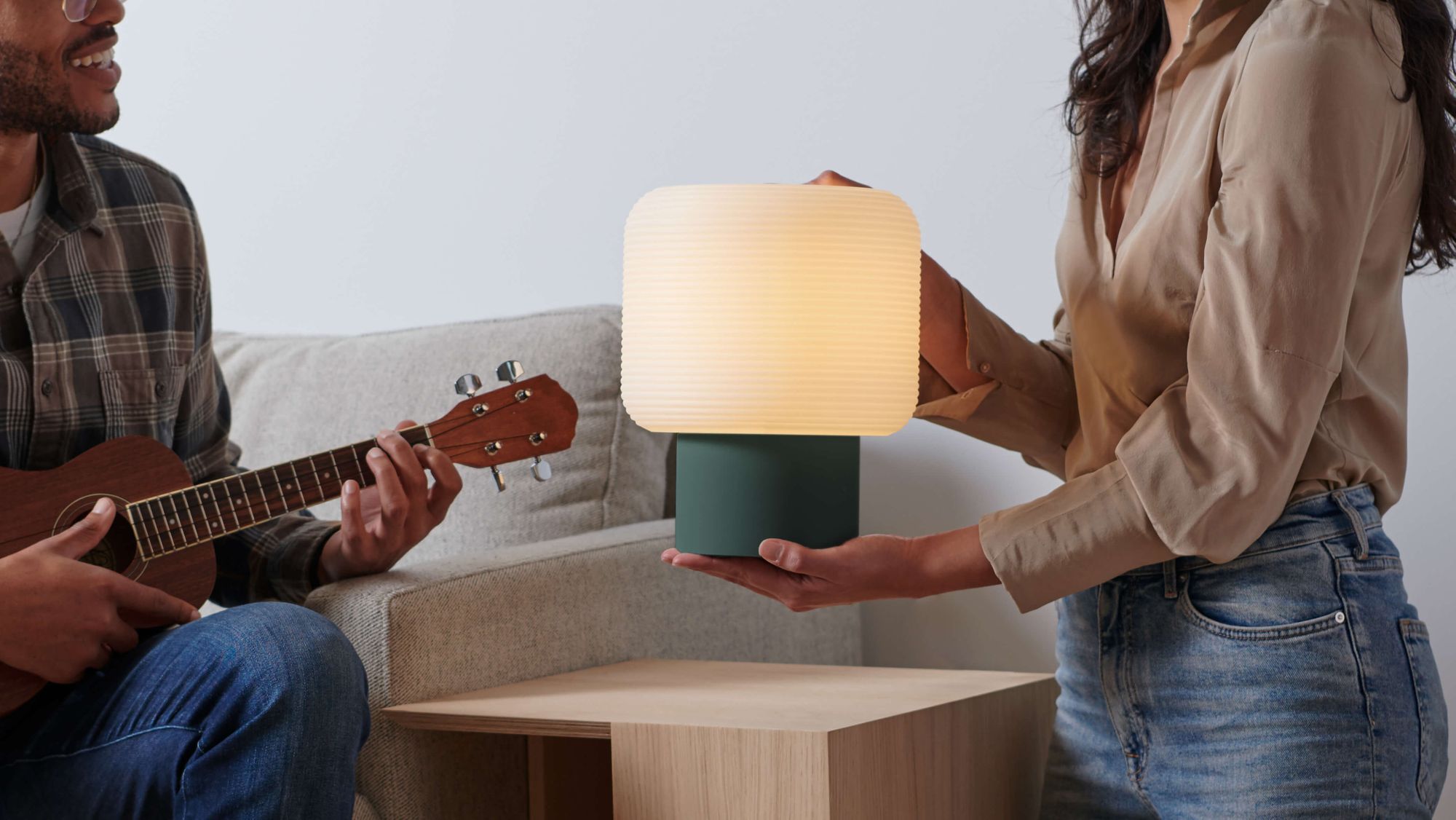
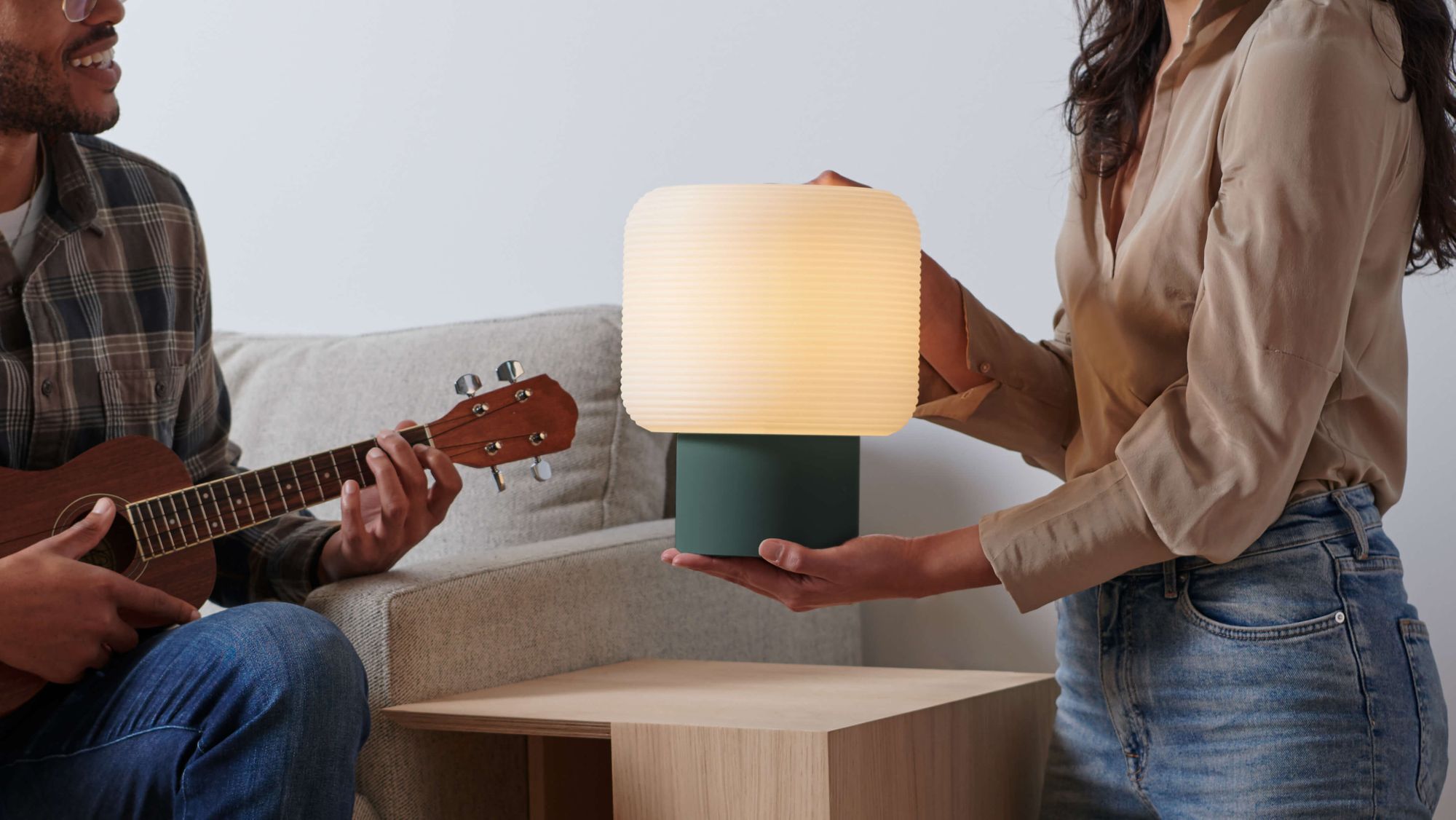
Proper lighting is essential to eye health no matter where you live or how big your home is, but it can also be used to visually expand a small space. Interior designers frequently rely on optical illusions to make their clients’ small bedrooms, offices and kitchens feel bigger. They play up natural light to make walls seem wider, cast light upwards to make ceilings feel higher and layer different colors and intensity of light to separate one area from another. Follow below for six great tips for making your tiny studio or one-bedroom apartment feel airier, more open and a whole lot larger.
1. Cast light upwards
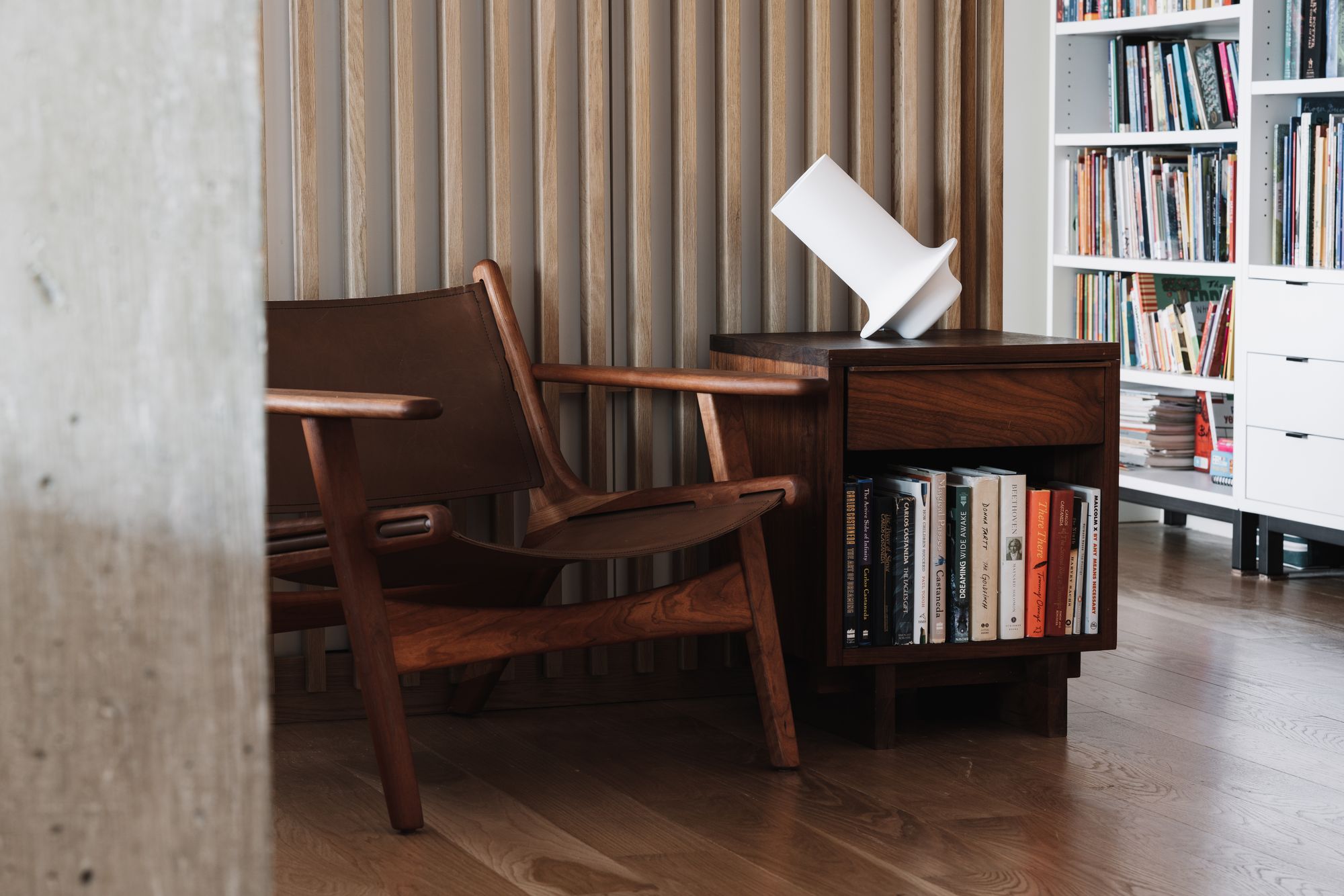
Orbit Table Light by Gonzalo Baxter
Create the illusion of higher ceilings and a bigger space by casting some light upwards with adjustable floor or Wall Lights. Upturned Floor Lights are great to use in conjunction with natural light because they act as an extension of outdoor sunlight, so consider placing them in the corners near any big windows in your apartment. If your entire apartment is pretty dark during the day, add a Floor Light or Wall Light to as many corners as you can. Corners naturally create shadows due to their perpendicular juncture. Placing a Floor Light in the corner with light that casts outward and upward will illuminate the area and visually expand a tight space.
2. Layer your lighting
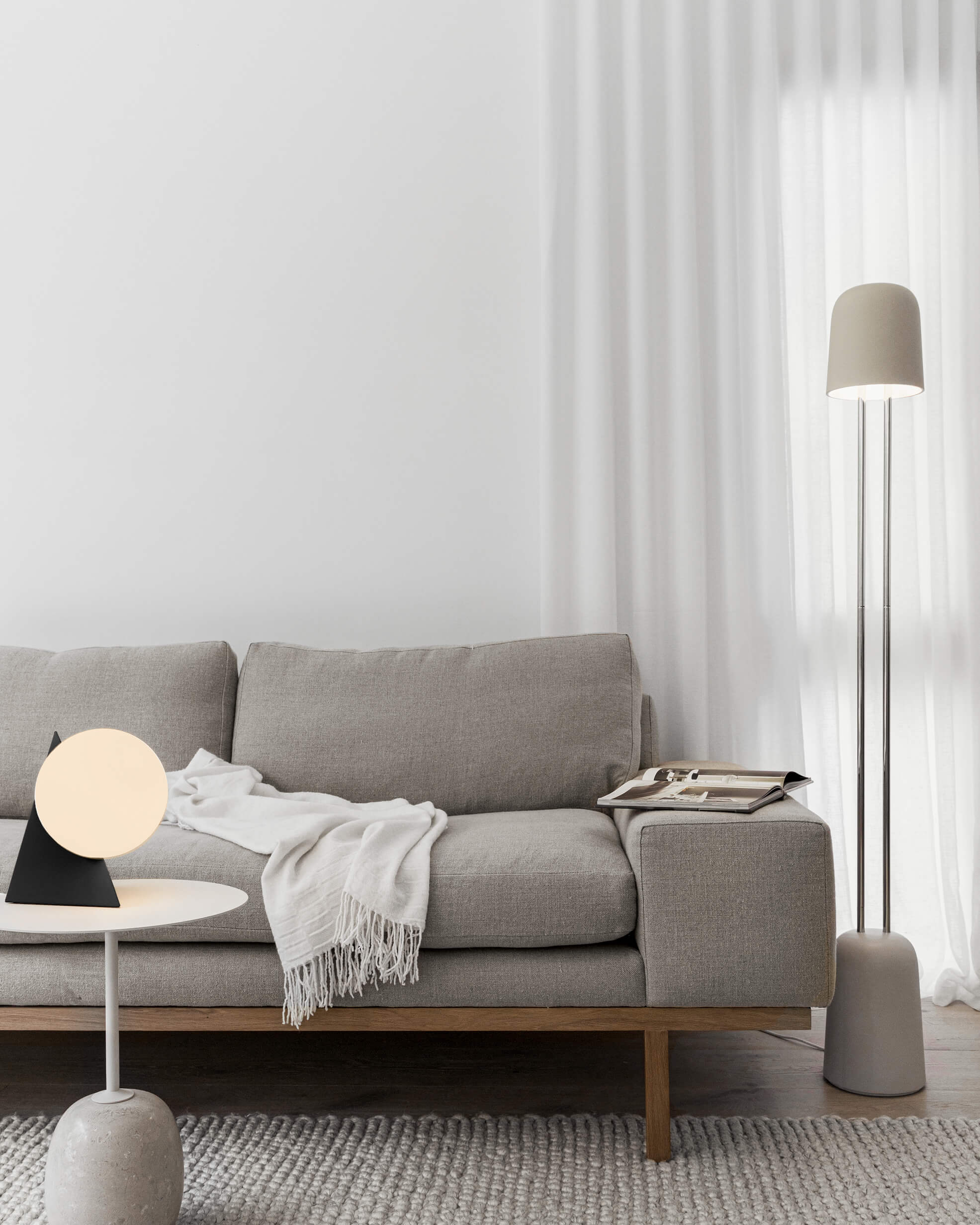
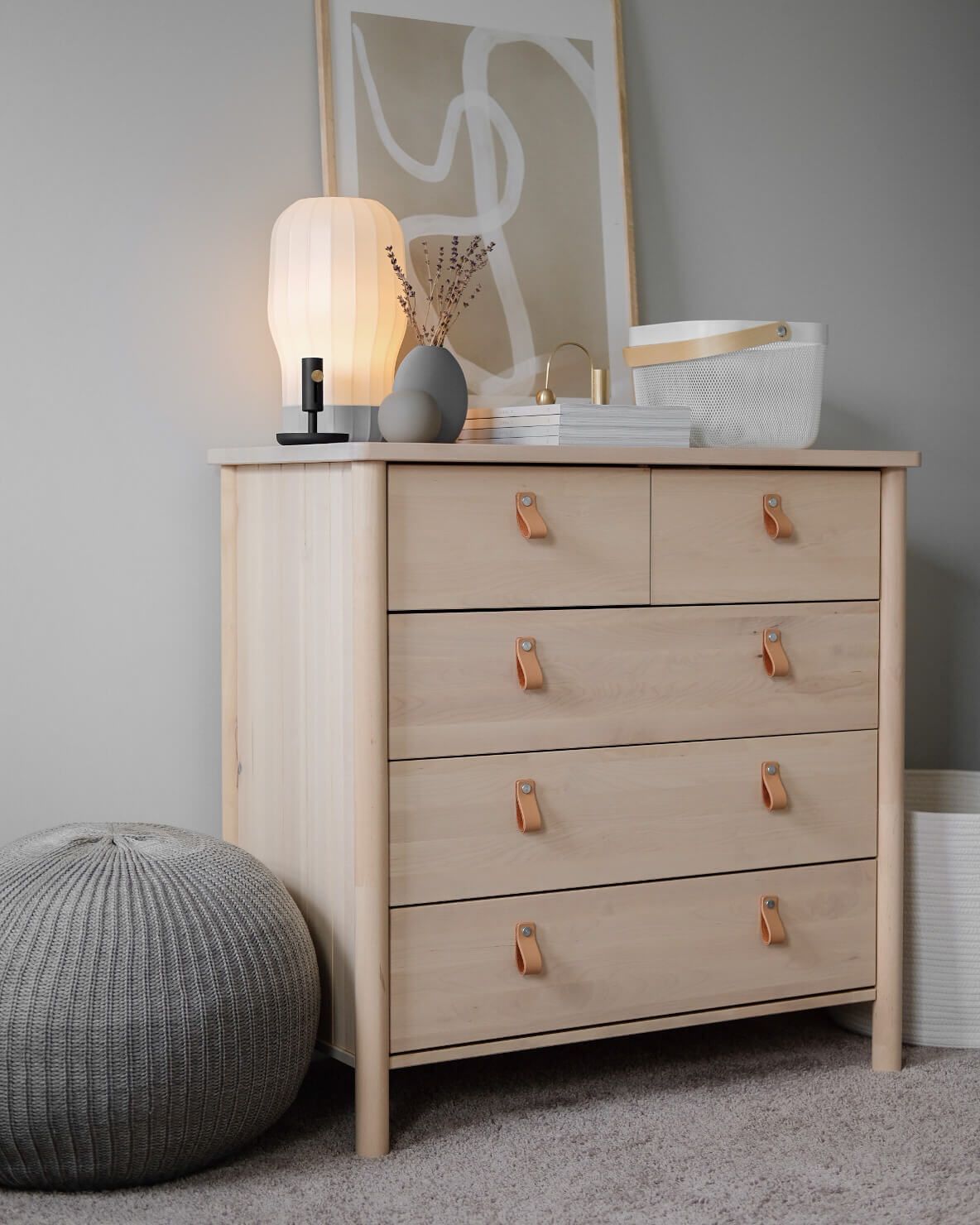
Pyrasphere Table Light by Louis Filosa | Gio Floor Light by Ammunition | Balloon Table Light by Chris Grannenberg
If you depend primarily on sunlight from windows to illuminate your apartment during the day, the small space can feel tighter and more oppressive as the day progresses and the sun goes down. Furthermore, when natural light has faded away, you might be tempted to flip on a task light to work at your desk or simply huddle over the blue light of your computer screen. However, narrowing your eyes to better focus on your laptop before glancing around a pitch dark room can cause headaches, disorientation and eye discomfort while contributing to exhaustion. A room lacking properly layered lighting can also lead to long-term damage to the health of your eyes.
Avoid creating blind spots or harmful light/dark contrast in your living room or bedroom – especially if you are using either as a work-from-home space – by layering Floor Lights with Table Lights and Wall Lights. Place a Floor Light in the corner near your desk and a task light on the shelf above it to create a gradient of light that protects your eyes and head from the shock of transitioning from bright light to darkness. Do the same in your living room or reading nook for seamless day-to-night reading or tv-watching. Not only will layering your lighting protect your eyes and your brain, but it will also make the space look bigger by adding depth. A gradient of light encourages the eye to travel rather than staring at one spot, tricking you into thinking the space is larger than it actually is.
3. Use lighting to create "activity zones" and pathways
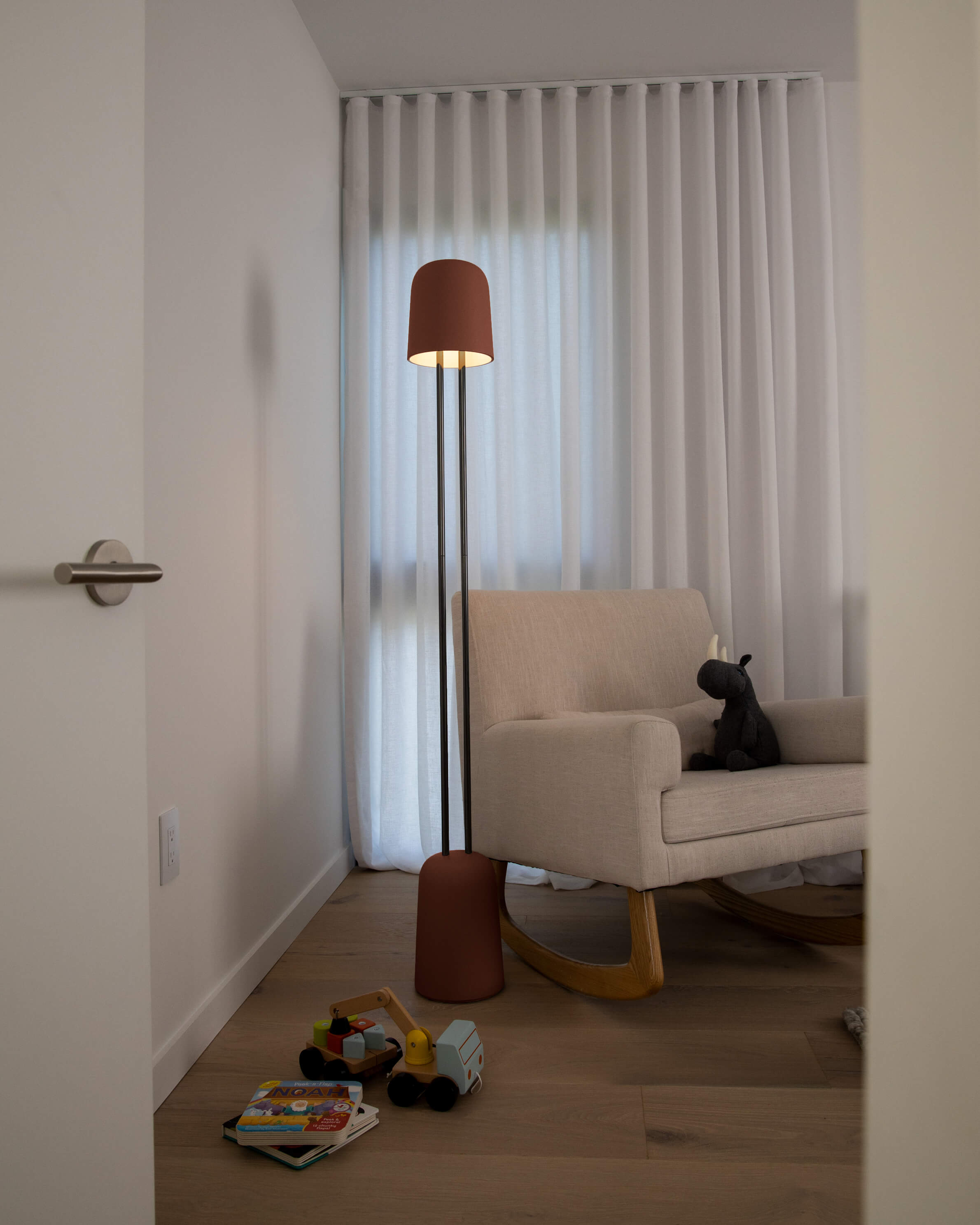
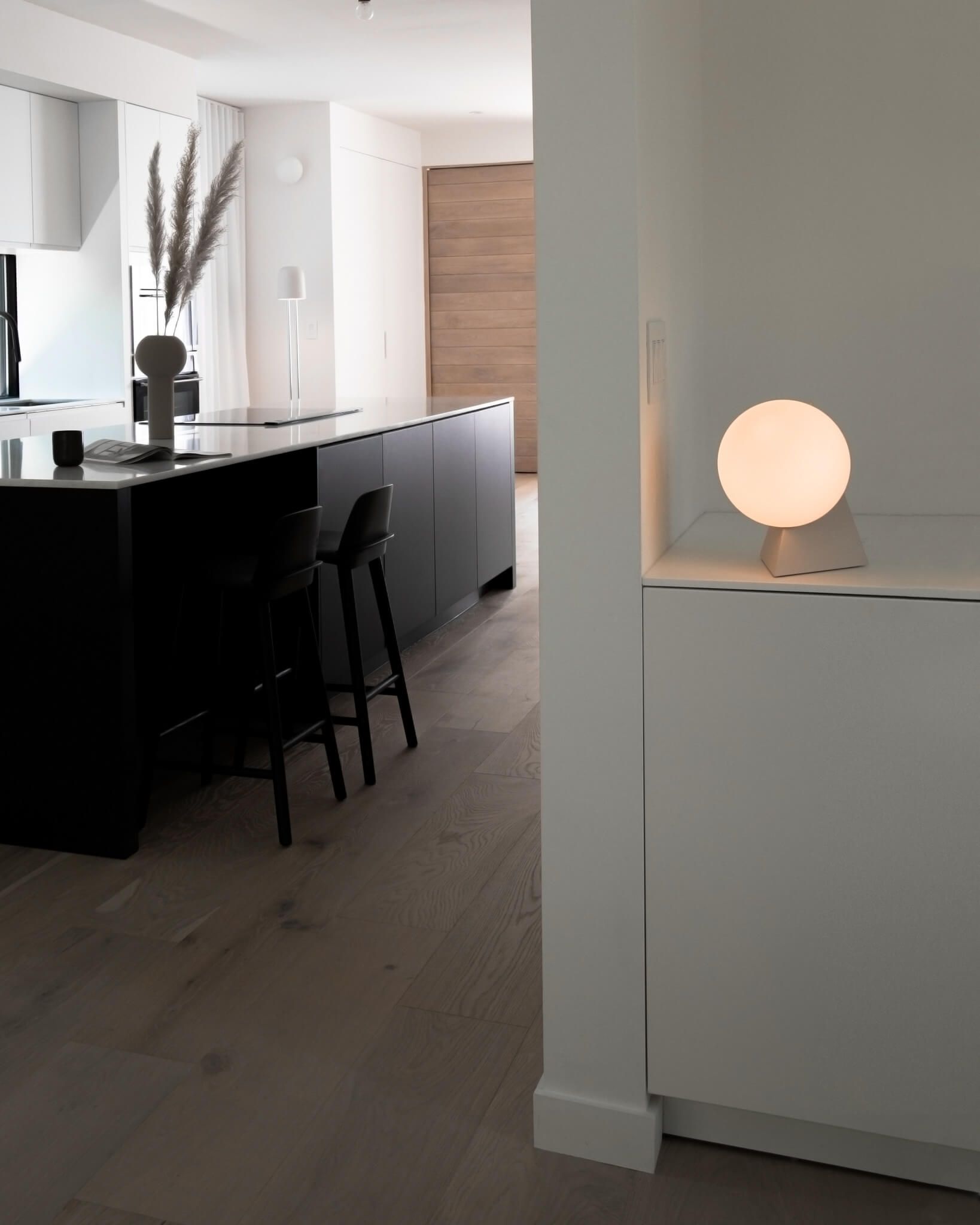
Gio Floor Light by Ammunition | Pyrasphere Table Light by Louis Filosa
The layouts of studio and one-bedroom apartments are typically fairly undefined. Most studio apartments have an open floor plan across the kitchen, “bedroom” and “living room” spaces, with the occasional kitchen island separating the oven and prep station from entertainment, work and rest areas. One bedroom apartments are situated much the same way, with a single wall separating the bedroom from an otherwise freeform space. Instead of breaking up your studio or one-bedroom apartment’s open floor plan with folding screens or obtrusive furniture, use lighting to create “activity zones.”
Arch a Floor Light over one side of the couch and place a Table Light on the end table on the other side to create an entertainment zone. Having the two lights placed opposite each other -- aiming their light specifically at the couch and coffee table -- creates the illusion of a separated space. Continue this effect throughout your apartment by mounting a Wall Light over your hall tree or credenza to bring attention to the entryway and delineate that space from the rest of the room. Consider placing Wall Lights throughout your studio apartment to help separate out different zones. Gantri’s Wall Lights -- like the -- are space-saving and lightweight, with effective, dimmable light that can easily illuminate a space without overwhelming it. The footprint of the lights should be wide enough to illuminate this space alone, stopping short of continuing into other areas of the room.
Light can be used to create both “activity zones” through spotlighting and to create pathways throughout the apartment with directional lighting. These little pathways can help visually expand a small space, as they encourage fluidity and movement, making the space seem bigger and more dynamic. Make sure all lights in your apartment come equipped with dimmer switches, so light can be properly layered for eye health while still emphasizing certain areas.
4. Play up natural light
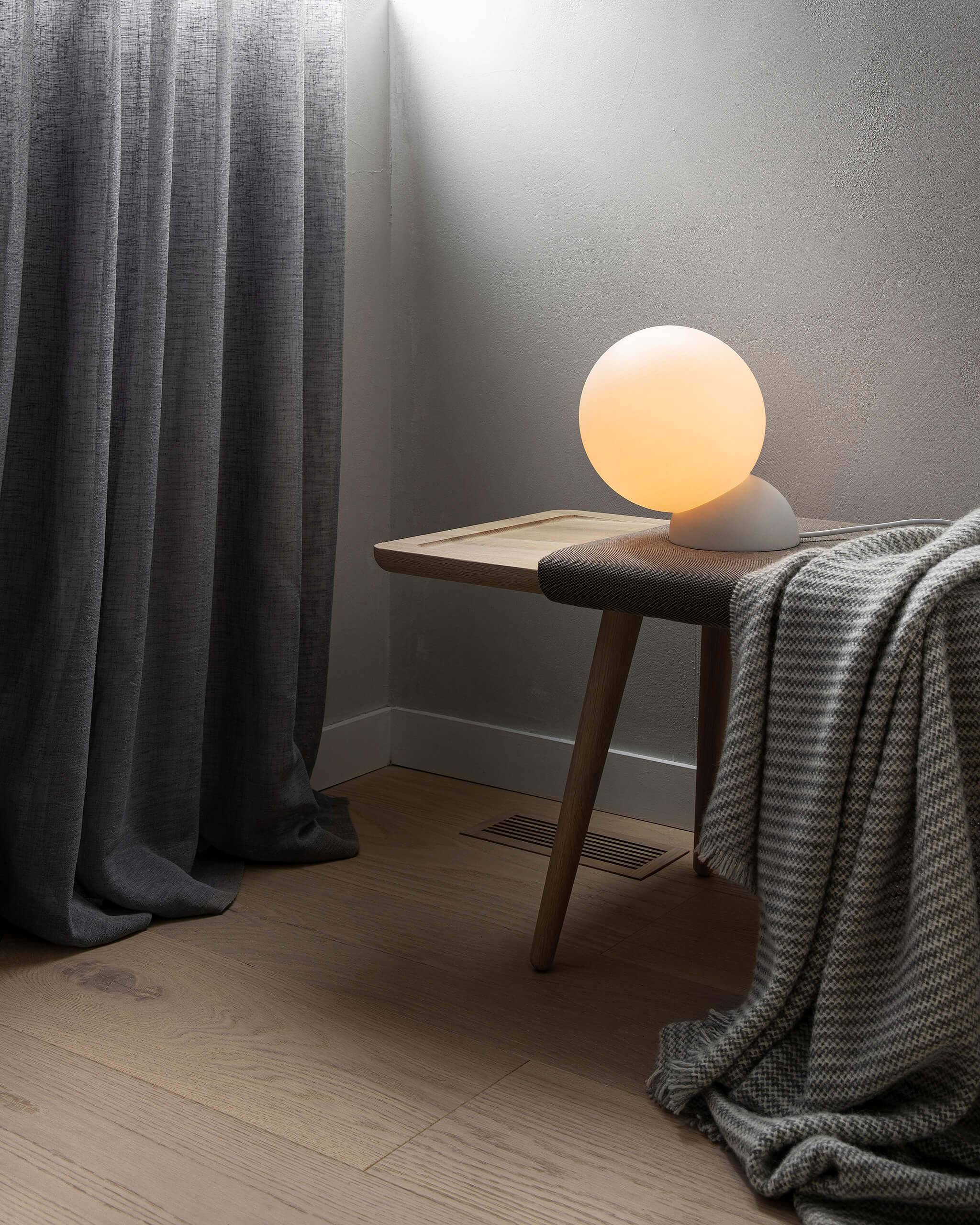
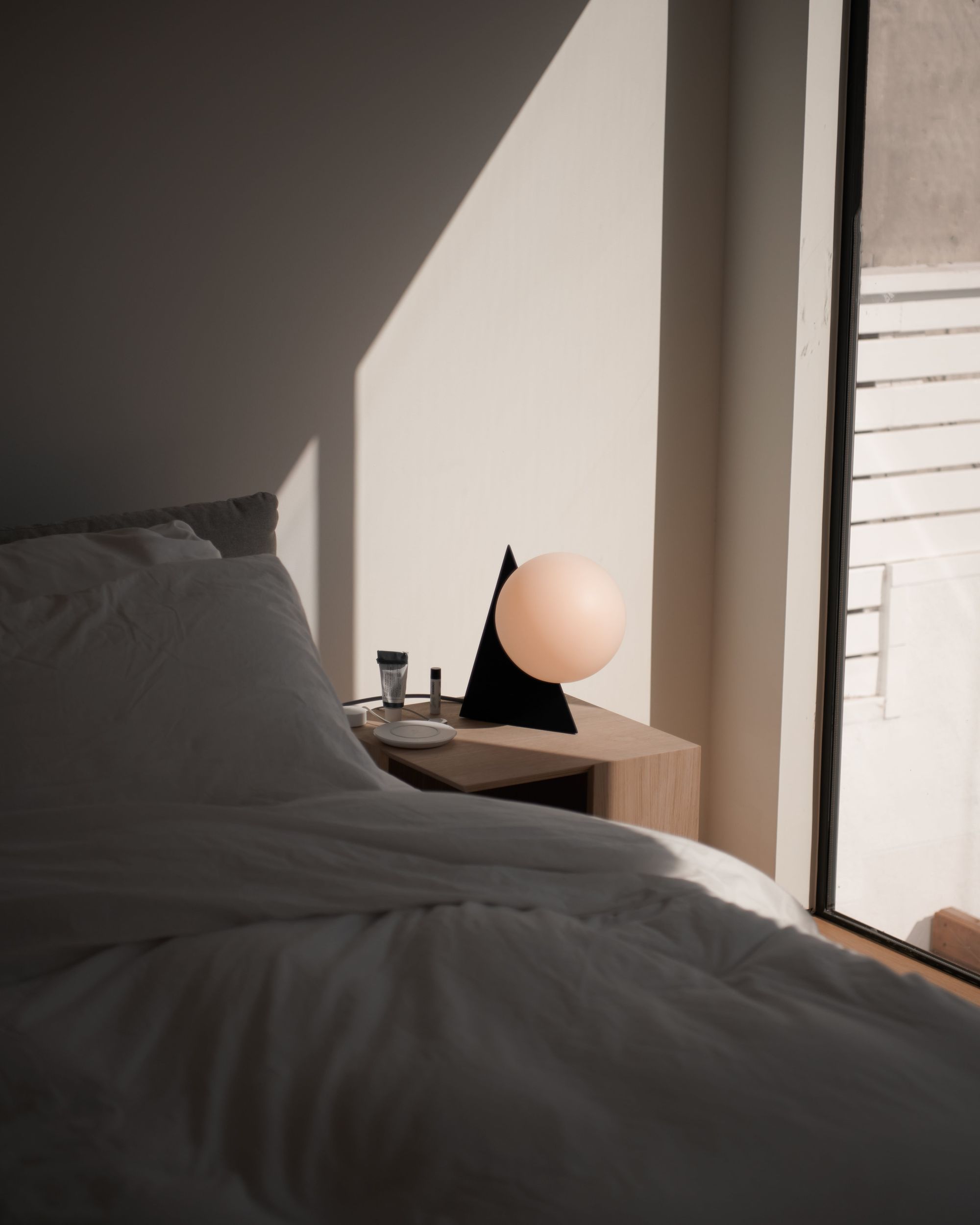
Cantilever Table Light and Pyrasphere Table Light by Louis Filosa
Playing up natural light is an important step in making any room feel bigger because it blurs the lines between the outdoors and the interior of your home. If your apartment does not have access to natural sunlight, trick your mind into thinking sunlight is entering the room by choosing warm-colored bulbs for all your lights. You can also create the illusion of a larger swath of sunlight -- from a small kitchen window or a south-facing bedroom window -- by mounting outward-facing Wall Lights on either side of the window.
Turning on the Wall Lights and matching their brightness and color to the small amount of sunlight pouring in from the outdoors will not only make the window feel larger, thereby expanding the space, but it will also help your eyes transition as daylight fades. Another trick for making the most of whatever natural light your apartment has access to is to place mirrors opposite windows. As reflective surfaces, the mirrors will catch and bounce sunlight around the room, illuminating much more of the space.
5. Use your walls – but be kind
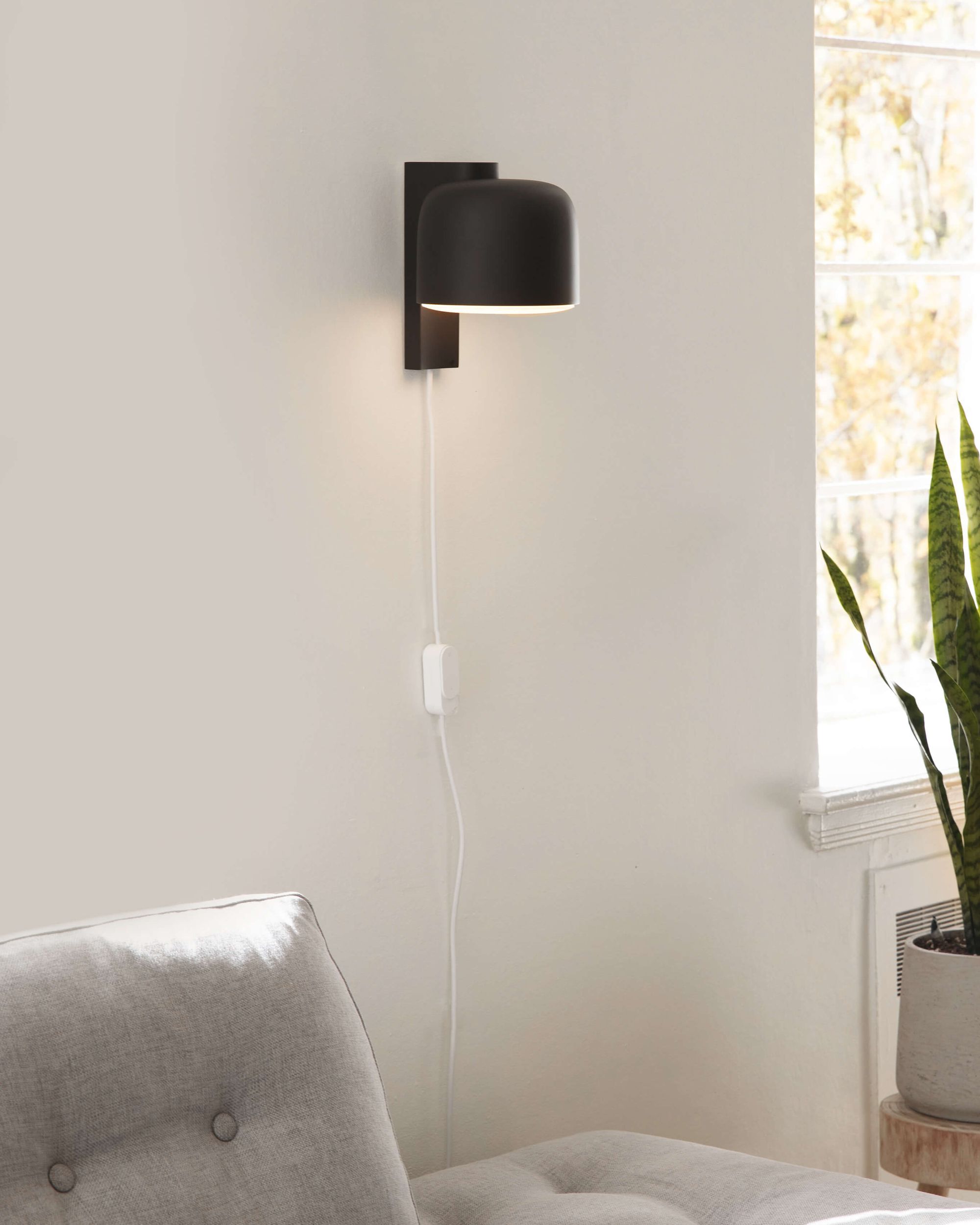
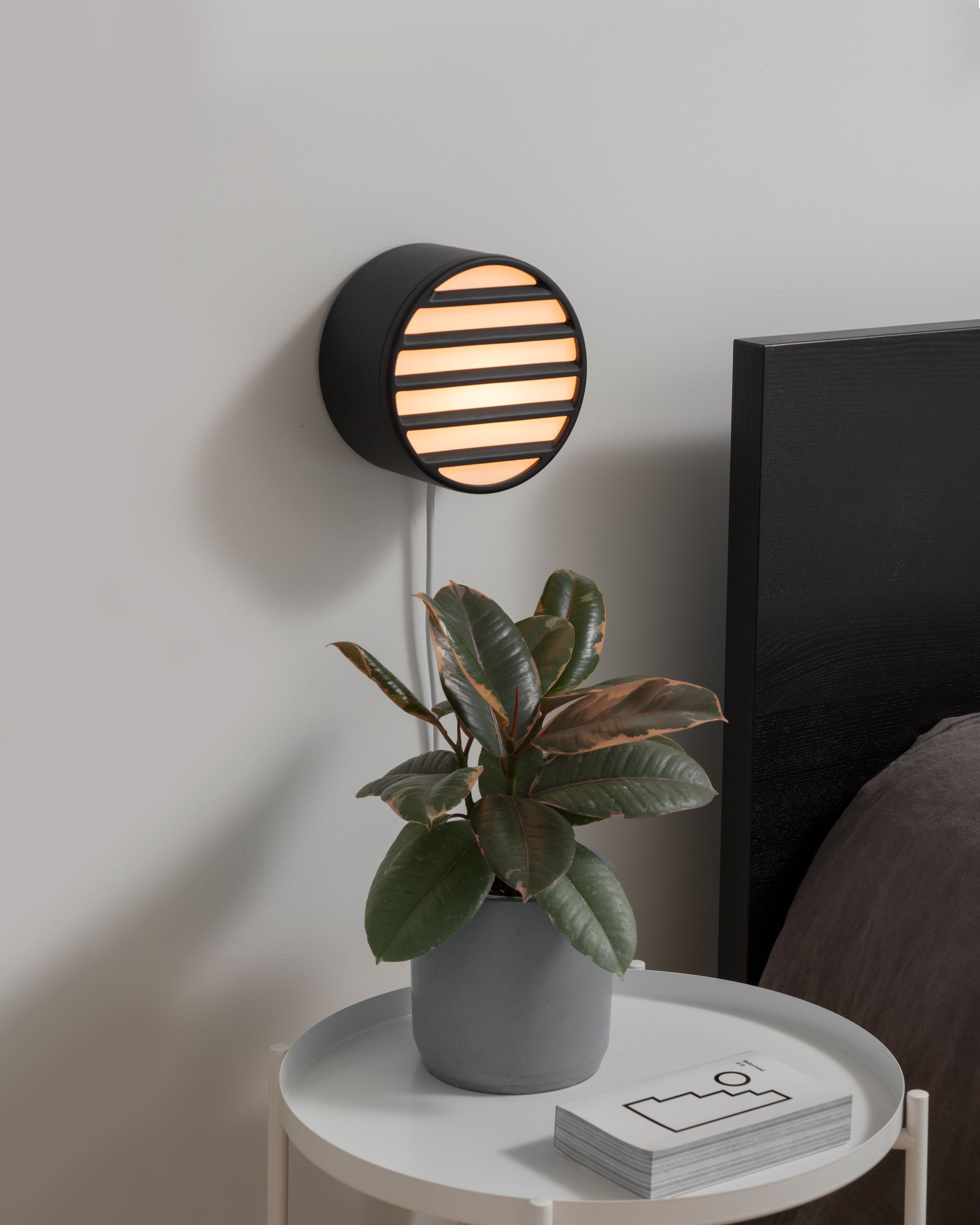
Gio Wall Light any Signal Wall Light by Ammunition
As you consider lighting your small apartment, you will likely try to hold onto your security deposit by choosing task lights, Table Lights, or Floor Lights to fulfill most of your lighting needs. Conventional wisdom dictates that attempting to install large pendant lights with complicated wiring or picking hefty Wall Lights that will leave a big hole behind when you move is a big mistake. If you are pressed for space and want to use Wall Lights for your nightstand lighting -- or if you need additional lighting in your kitchen, reading nook, or the hallway to the bathroom -- consider a Wall Light with lightweight, low-impact hardware. Gantri Wall Lights -- like the Gio Wall Light -- weigh less than three pounds, have a thin cord and flat plug and are easily mounted with minimal hardware.
6. Don't forget your kitchen
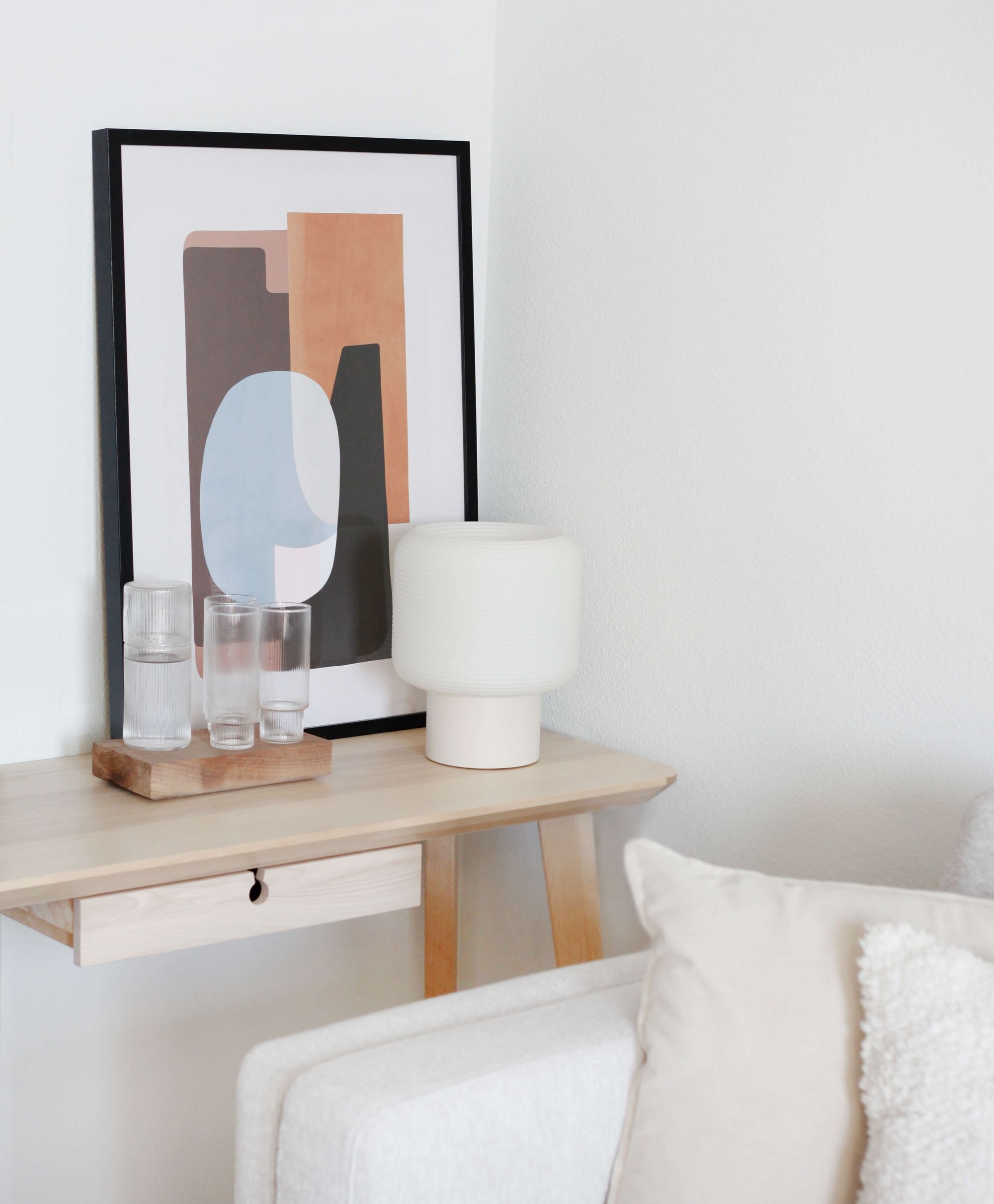
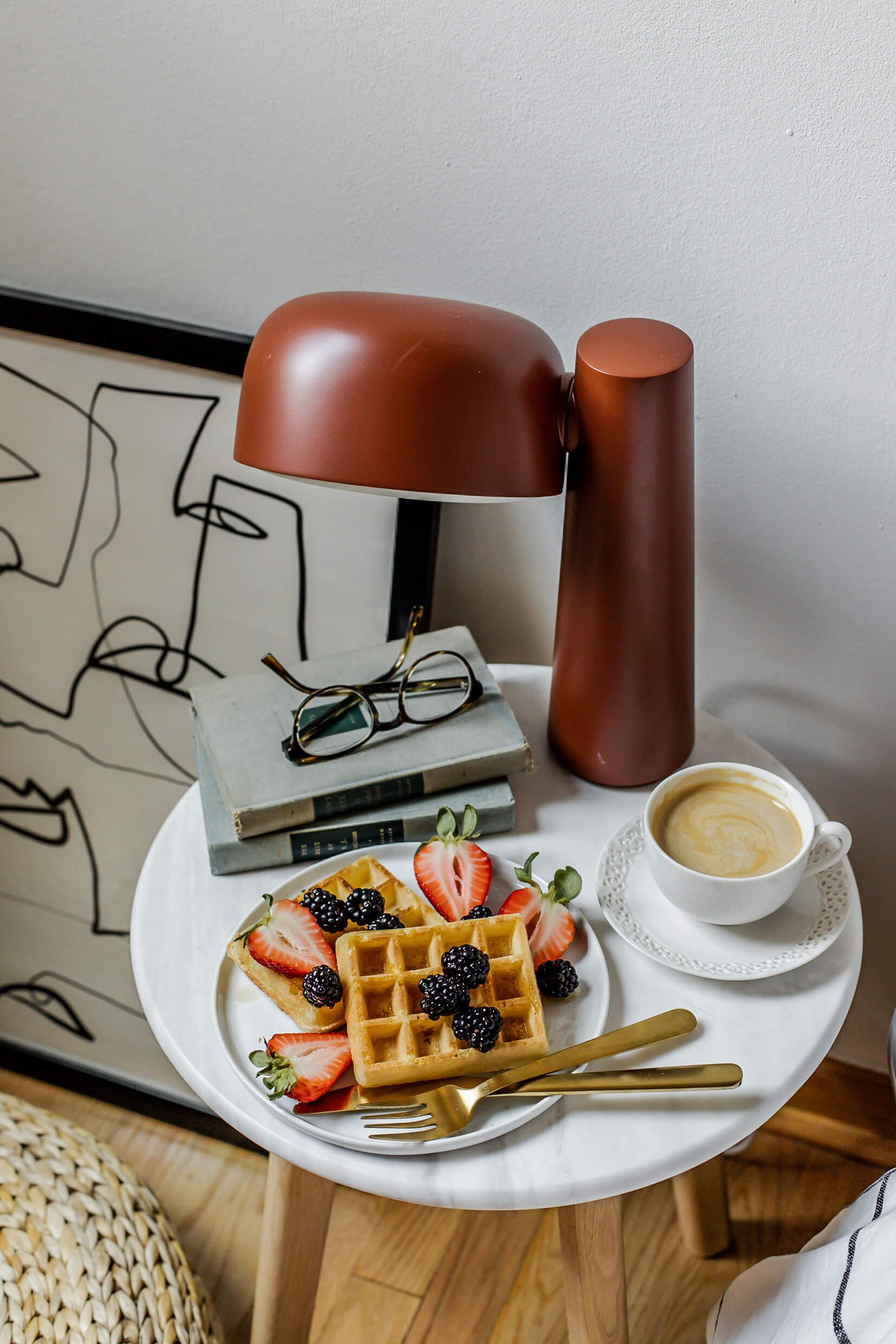
Maskor Table Light by Muka Design Lab | Gio Task Light by Ammunition
Chances are, you have never considered adding task lighting to your kitchen. While most one-bedroom and studio apartment kitchens come equipped with an overhead light, many of those lights are either offensively bright and fluorescent in color or are not bright enough. If you spend any time in your kitchen cooking meals, prepping food or washing dishes, your overhead light is probably not doing you any favors. Overhead lights are great for basic lighting but they are not equipped to handle any forms of work in which you lean over a counter or sink.
Much of the light from a kitchen overhead light is lost when you lower your head over a cookbook or lean into the vegetables you are chopping, adding a bit of annoyance -- or even danger -- to the mix. To minimize accidents -- bonked heads, sliced fingers or missed ingredients -- add task lighting to your kitchen. Wall Lights have been recommended fairly consistently throughout this article, but they really are an incredible antidote for small, dark spaces. Mount a Wall Light -- like Gantri’s Carve Wall Light -- in your kitchen for use as task lighting so as to avoid taking up too much usable space or knocking over an in-the-way Table Light.
Ensure your small studio or one-bedroom apartment feels more like a habitable home than a minuscule motel room by filling each room with Wall Lights, Floor Lights, and Table Lights from Gantri. Impress your guests and protect your fingers without marking up your walls by updating your kitchen with the lightweight, easily mounted Carve Wall Light. Create an entertainment zone in your open floor plan apartment with a pair of small but effective Table Lights -- like Gantri’s Word Table Light – on each end table. Widen walls and vault ceilings by illuminating every corner with Floor Lights like Signal Floor Light. By following these lighting tips, you can convert your small apartment from a space you have to be in to one you love to be in.

